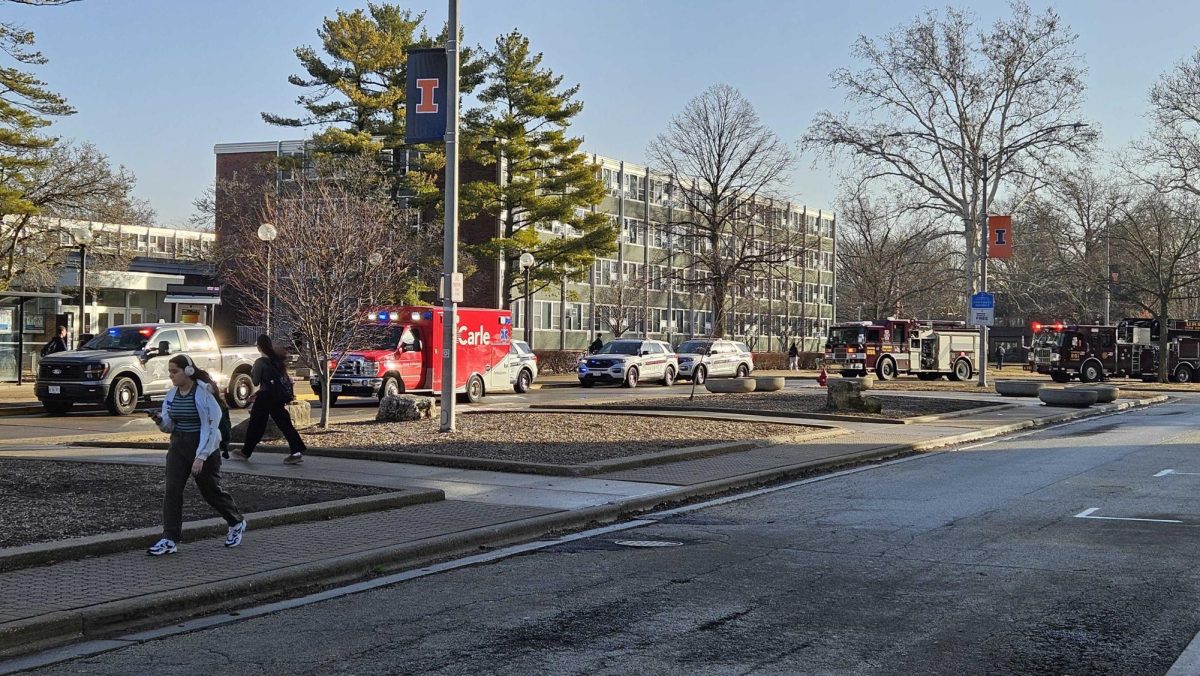The Illinois Admissions Review Commission panel recommended Thursday in its final report that all Board of Trustee members should submit resignations. Gov. Pat Quinn will then choose which board members to accept.
In a press conference held in Chicago Thursday, University President B. Joseph White said he agreed with the commission’s final report and said it contained good, thorough analysis. He would not comment about if any University officials were to be fired.
“I never discuss personnel matters,” White said.
Next Wednesday in Urbana, White will hold a meeting with University-wide campus leadership, senior admissions officers and faculty leaders to create a firewall around the admissions process.
“The outcome of the meeting is action plans and assigned responsibilities,” White said.
Get The Daily Illini in your inbox!
The assigned responsibilities and action plans would align with the new admissions policies recommended in the Admissions Review Commission report. Among others, Category I, the admissions process that catered to applicants who were supported by public officials, University Trustees, donors and other prominent individuals, will be eliminated.
The establishment of a best practices review was also recommended in the report. It further stated that the University admissions offices would conduct a review of counterpart offices at the university and elsewhere.
In particular, the University’s College of Medicine, where 25 people review applications and forbid recommendation letters from anyone who does not know the applicant’s academic merits, will be reviewed as a worthy admissions process.
The College of Law was notable among the admissions controversy, being faced with directives from the University’s central administration to admit “substandard applicants,” the report stated.
Hearings included exchanges with Heidi Hurd, former law school dean, about admitting under qualified, well-connected applicants in exchange for scholarship money, and a plan to admit a poorly qualified applicant backed by Eppley in exchange for jobs for law school graduates.
In a statement Thursday evening, current College of Law Dean Bruce P. Smith said that he is grateful to the commission for its careful and comprehensive report.
“The Commission properly recognized that the College of Law has already taken appropriate steps to rid itself of undue influence in admissions,” Smith said.
Also involved in the hearings were the University Board of Trustees.
The commission voted last week to recommend that all nine voting trustees resign following revelations that the University maintained a list of politically connected applicants and admitted some over better-qualified candidates. Gov. Pat Quinn previously asked for the resignations of all board members.
Student Trustee Matt Reschke said the recommendation did not come as a surprise.
“Instead of those [board members] who carved out their niche and it was business as usual, we’re looking at possibly a new board coming together and hopefully working on pursuing everything together,” he said.
Two board members, Chairman Niranjan Shah and Lawrence Eppley, have already resigned.
Eppley, the board’s former chairman, resigned in late July. University records show he wrote e-mails to President B. Joseph White noting former Gov. Rod Blagojevich’s interest in candidates, including a relative of convicted influence peddler Tony Rezko.
Board Chairman Niranjan Shah, a Chicago-area businessman, resigned Monday. E-mails released by the university include lists of applicants Shah sent to Chancellor Richard Herman, asking for help in reaching “a favorable outcome for these individuals.” Documents also show Shah successfully pressed Herman to create a six-figure University job for his future son-in-law.
The commission’s report also will recommend a code of conduct for trustees, suggest procedures for appointing trustees and ask the University to consider efforts to improve diversity.
White said this has been a painful, but necessary process.
“My goal is nothing short of establishing the University of Illinois as the leader in admissions processing,” White said. “This is an opportunity for us to first fix the problem…then set the standard.”





